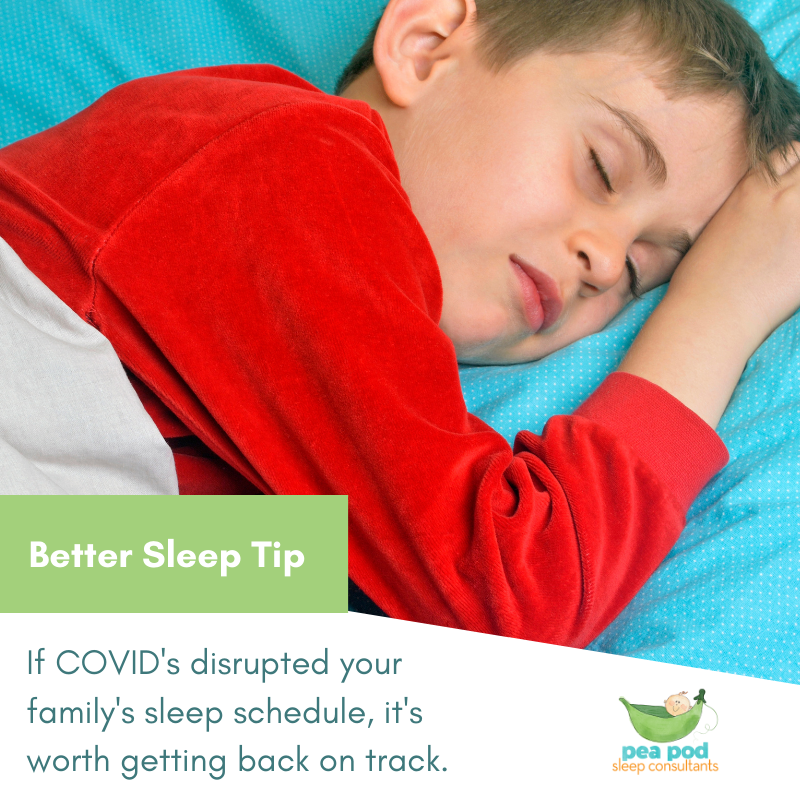When COVID causes nighttime troubles
These years of the pandemic that has disrupted our lives and that of our children. It’s been too long of virtual learning, hybrid learning and in-person learning, for some, all of the above. It’s been challenging to keep track of schedules and maintain flexibility to adapt to the ever-changing COVID guidelines and protocols. Many of us are still in survival mode. You may not be getting much sleep as you try to meet the needs of your kids and the demands of your career and other needs. And your child’s sleep disruptions only make it harder. We can’t help but become a bit lax when it comes to household sleep rules, and now you may be parenting through the results.

If you’re noticing your kids are a little grouchier, even less patient or maybe just off, you’re not alone. And we can help. We never want parents to feel guilty for doing what you need to do. We just want healthier families. And with that in mind, it’s important to note, a recently published analysis of 16 studies (JAMA Network Open, March 21, 2021) found that your child’s sleep disruptions can contribute to depression.
So let’s work together to make sure your kids get the sleep they need, so you can get the sleep you need, so you can all feel a little better.
The steps toward recovery after your child’s sleep disruptions
- Have your kids wake up at the same time everyday, regardless of whether it’s an in-person, hybrid or virtual school day. Exposure to sunlight at a consistent time every morning establishes and maintains a predictable circadian rhythm.
- From dinnertime to bedtime, quiet down the entire house. Dim the lights, silence your phone and set the stage for night sleep. Make sure that your child has a consistent bedtime routine during that 30-60 minute window before “lights out”.
- Eliminate screen time for at least an hour before bedtime.
- Make sure your child’s bedroom is cool and dark.
- Bedtime (in bed with lights out) should be at a consistent time every night. Through preschool, aim for bedtime before 8:00 PM. After 8:00 PM, cortisol starts rising. When it rises, kids get their “second wind”. It takes longer and gets so much harder to fall asleep.
The importance of sleep can’t be overestimated. It affects our kids’ behavior, temperament and learning. If you’ve been a little lax with your household sleep rules, simply managing your child’s sleep disruptions, it will be worth getting back on track. And if you need help, you know where to find us.
